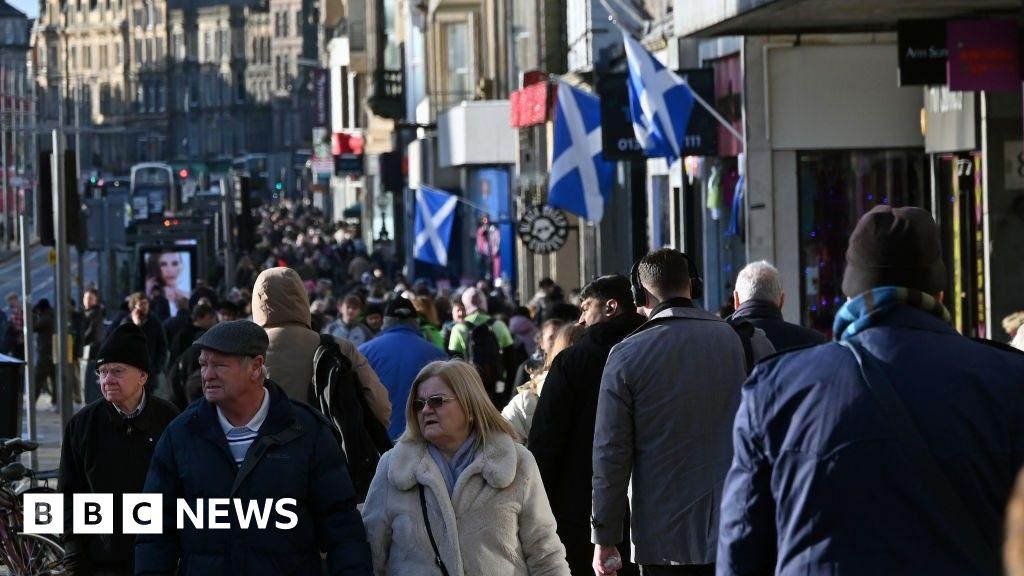Sports
Glasgow to host 2026 Commonwealth Games after rescue deal agreed

The Scottish government has agreed a rescue deal for a scaled-down version of the 2026 Commonwealth Games to be hosted by Glasgow, after Australian authorities offered a “multimillion-pound commitment” to save the event.
The Australian state of Victoria abruptly withdrew as host of the 2026 Games in July 2023, blaming escalating costs. Since then, speculation has grown about whether Glasgow could build on its successful hosting of the event in 2014, amid concerns from the Scottish and UK governments about financing the event.
Last Friday, the Commonwealth Games Federation (CGF) offered Scotland almost $A200m (£100m) from the Victorian government’s $A380m compensation owed for pulling out of hosting the event.
The announcement was made after a meeting of the Scottish cabinet on Tuesday morning, and after Scotland’s health secretary, Neil Gray, met representatives of Commonwealth Games Australia and Commonwealth Games Scotland on Monday. The decision remains subject to formal approval from Commonwealth Games Scotland and the CGF.
Gray said: “The fact that Glasgow was asked to step in and host the 2026 Games is testament to Glasgow and Scotland’s fantastic reputation for hosting international events. That said, we have been clear that our financial resources are limited.”
Speaking before the announcement, Gray said it was “critically important” to make sure there was no financial risk to the government, adding that there was also concern about critical comparison with the “incredibly successful” 2014 Games.
Scottish secretary, Ian Murray, said the UK government had worked closely with their Scottish counterparts “to ensure a positive outcome”.
“This is good news for the Commonwealth Games and another opportunity for Glasgow to demonstrate yet again its ability to put on fantastic sporting events.”
Ian Reid, the chair of Commonwealth Games Scotland, said he welcomed the Scottish and UK governments’ backing for their proposal.
“We have been clear from the outset that our Games concept for Glasgow 2026 aligns with the CGF’s strategy to make the Games more accessible for future hosts, whilst ensuring that public funds are not required.”
Reid said Glasgow was “one of the few cities in the Commonwealth that can deliver on time given its world-class facilities, experienced workforce and strong supply chain”.
“This is a really exciting opportunity and we will be working hard over the coming days to bring the final pieces of the puzzle together,” he said.
The proposed event would be very different from the 2014 spectacular, which captivated the city in the run-up to the independence referendum and included lavish opening and closing ceremonies at Glasgow’s main stadiums. The 2026 model would feature fewer sports – 10 compared with 18 in 2014 – across fewer sites.
Responding to the Scottish government’s confirmation, the CGF president, Chris Jenkins, said: “At the heart of our discussions has been an investment of £100m from the CGF and the commitment that Glasgow 2026 would not require financial underwriting from either the Scottish or UK Governments. The additional generous contribution of around £2.3m from Commonwealth Games Australia to the Glasgow concept will further enhance the Games delivery.”
He suggested that this slimmed-down version could be “an important first step” towards a new model of Games that minimised cost and encouraged more countries to consider hosting in future.
The leader of Glasgow city council, Susan Aitken, said: “It should be no surprise that, in looking to reimagine competitive sport at a Commonwealth level, organisers feel Glasgow is a place where their plans can flourish.”
But the Scottish Labour leader, Anas Sarwar, has warned that “it shouldn’t take big events for the council to do its job and clean up the city”. Local politicians are increasingly raising concerns about the state of Glasgow city centre, with dilapidated Victorian architecture, gap sites and the burned out art school yet to be rebuilt a decade after it was devastated by fire.
Sarwar, who hopes to become first minister in 2026 after the next Scottish parliament elections, hosted a summit of Glasgow business leaders to discuss the opportunities afforded by the Games.
He said that the city currently felt “let down, neglected, ignored” but that it was a “no-brainer” that it should host the Games. “It’s a chance for us to be a window to the rest of the world, to complete the legacy of 2014 and to demonstrate that Glasgow can do leadership by rescuing a Games that otherwise wouldn’t happen.”










